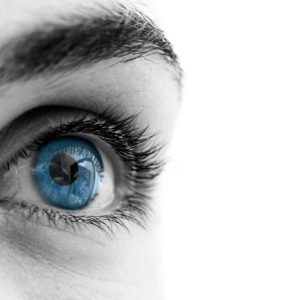Many things in our bodies are a reflection of what we eat and how well we take care of ourselves. The eyes are no different. Eating certain types of foods, and skipping others, can help protect your vision throughout your life. Here are a few things to enjoy and avoid for an “eye-healthy diet.”
Try these:

Vitamin A for Structure and Function: This crucial vitamin, sometimes referred to as beta-carotene, retinol, or retinal, is a powerful anti-oxidant and anti-inflammatory agent. It plays a major role in scotopic or night vision, where it is essential for rhodopsin, which converts light that enters our eyes into signals that can be interpreted by our brains. Vitamin A also helps maintain a clear, well-hydrated cornea. The cornea accounts for most the eye’s refractive, or seeing, power. A dry or damaged cornea can decrease visual acuity and cause significant pain and discomfort. In addition to playing a direct role in the visual pathway, vitamin A can also help protect your eyes from damage by unstable molecules called free radicals. According to the National Institutes of Health, the recommended dietary allowance for ages 19 to 50 for a male is 900 micrograms and 700 micrograms for a female. Vitamin A deficiency is rare in the US, but it is common in the developing world and can cause serious vision and health problems. The best way to obtain vitamin A is by adding foods like eggs, fish, meat, and orange and yellow fruits and vegetables such as carrots to your diet. Smokers beware: Beta carotene supplements have been associated with a higher incidence of lung cancer in patients who smoke.
Macula Protectors: The macula is responsible for your central vision. Antioxidants such as beta-carotene, vitamin C, vitamin E, and zinc play a major role in protecting your macula from damage, especially damage caused by Age-Related Macular Degeneration (ARMD). Over time, lipid deposits can build up under the retina and block the passage of nutrients that are necessary for macular function. While there is no magical cocktail to help avoid macular damage from ARMD, getting plenty of beta-Carotene, vitamin C, vitamin E and zinc through your diet can certainly help.
Water: We know that drinking water is important, but we often reach for soda, coffee, or energy drinks. Unfortunately, our favorite caffeinated alternatives may exacerbate dehydration. Lack of water in your body can pose a significant threat to your eyes, and other major organs. To stay hydrated, opt for a drink with minimal additives. If you find plain water boring, try adding a dash of flavor with a slice of lemon or your favorite fruit.
Skip These:
Cholesterol and Processed Fats: Vision requires a tremendous amount of energy, which means that our eyes need a steady and constant flow of blood to deliver necessary nutrients and remove waste products. Foods that are high in cholesterol and processed fats can negatively  impact blood flow to your eyes by polluting blood vessels and creating fatty clots known as Hollenhorst plaques. Impaired blood flow to the retina can lead to atherosclerotic diseases like Central or Branch Retinal Artery Occlusion and Ocular Ischemic Syndrome, which often have swift and irreversible consequences for vision.
impact blood flow to your eyes by polluting blood vessels and creating fatty clots known as Hollenhorst plaques. Impaired blood flow to the retina can lead to atherosclerotic diseases like Central or Branch Retinal Artery Occlusion and Ocular Ischemic Syndrome, which often have swift and irreversible consequences for vision.
Processed Sugars: These can lead to a number of unpleasant consequences for your vision. Too much sugar may lead to diabetes, which can damage the integrity of your blood vessels and is known as Diabetic Retinopathy. Damaged blood vessels can impede blood flow, and even lead to the formation of new, leaky vessels in a process called neovascularization, which only serves to cause more vision problems.
Smoking: While cigarettes are not a food, they are a consumable product that can cause serious ocular damage. Smoking significantly increases the risk of developing ARMD and Graves disease. With Graves disease, the immune system attacks healthy tissues throughout the body causing swelling and pain in the eye sockets, in addition to other symptoms that are evident throughout the body. Smoking can also lead to cancers in the eye and brain, which can cost you your vision and your life.
While a consistent, nutrient-rich diet is key to healthy eyesight, it is never too late to start taking better care of your eyes whether you’re a patient, an optometry student, or an optometrist. Not sure where to start? Get a full eye exam and a list of helpful tips from your friendly neighborhood optometrist!
Check out these articles for more info about healthy foods for your eyes, supplements for macular protection, and vitamin A!

